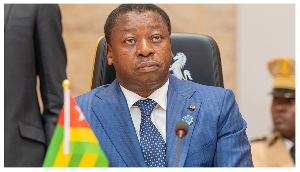Business News of Thursday, 2 July 2009
Source: GNA
Reviving local businesses to stem poverty in C/R
A Ghana News Agency feature by Alice Tettey
Cape Coast (CR), July 2, GNA - The International Labour Organisation (ILO), the Government of Ghana and its social partners have for the past six years been strategizing through a number of interventions to combat poverty in rural and peri-urban areas through its Decent Work Country Programme (DWCP) in some districts in the Central Region.
Under this laudable concept, DWCP is the Local Economic Development (LED) initiative designed to promote dialogue and build partnership among municipal and district assemblies and the local private sector, with its main focus on the growth of small businesses. To further promote the growth of the private sector, which has been identified as the "engine of growth" for all economies, the ILO in partnership with the assemblies has put in place Sub-committees for Production and Gainful Employment (SPGE) in seven out of the 17 districts in the region.
The SPGEs are to serve as platforms for the co-ordination of small- and medium-scale businesses and the assemblies to jointly exploit and harness opportunities and resources in their areas to facilitate increased production and job creation, all in an effort to eradicate poverty which is at its highest in the region.
The programme, which was successfully piloted in two districts, has now been replicated in five other districts in the region. The beneficiary districts are Ajumako-Enyan-Essiam, Twifo-Hemang-Lower-Denkyira, Mfantsiman, Effutu, Awutu-Senya, Gomoa East and Agona West.
The ILO hopes to extend it to three additional districts in the Region before the end of the year, targeting women, the youth in the informal sector and aspiring micro, small- and medium-scale entrepreneurs.
The ILO realized the need for the stimulation of economic activities through local competitiveness in the districts, since local actors could play significant roles in creating sound business environment, to help bring about the economic transformation badly needed for the socio-economic advancement of the region. Determined to have the programme succeed, it is focusing on knowledge development and capacity building and as such a series of technical workshops has been held for members of the SPGEs to enable them to function effectively to achieve its desired goal of stemming poverty in the region.
Six key district partners and policy makers selected from the assemblies and the Central Region Development Commission (CEDECOM) were also sent to Italy to help formulate relevant and coherent policies towards poverty reduction.
It was during one of such technical workshops that Dr Nii Moi Thompson, an International Project Expert on LED of the ILO, urged Metropolitan, Municipal and District Assemblies (MMDAs) to create the right environment to foster the growth, expansion and sustenance of the private sector to help stimulate economic activities in their areas. He also reiterated that the creation of more employment facilities through the private sector could help minimize poverty and enhance social stability and urged the SPGEs to map out strategies to ensure the success of the programme.
Also, Mr Kenneth Osei-Karikari, Head of Micro-finance and Enterprise Development Unit of CEDECOM, a beneficiary of the ILO's technical training programme in Italy, also advocated the creation of light industrial cities in every district to invigorate economic activities. Suffice it to say that although the Region abounds in both human and natural resources, it lacks the needed industries to propel its economic activities forward. Therefore, small and medium scale businesses need to be given the boost to turn the economic fortunes of the Region around while the assemblies should acquire large tracts of lands and develop them into industrial cities with all the necessary amenities, to help assist the small-scale business community in their areas to set up businesses without difficulty. Since the region was named among the four poorest in the country, various governments over the years have instituted a number of interventions such as the Poverty Alleviation Fund (PAF) and the Ghana Poverty Reduction Fund (PAF) and the Ghana Poverty Reduction Strategy I and II in their efforts to reduce abject poverty, but these could not achieve the desired impact as money meant for the poor for such entrepreneurs ended up in the wrong pockets.
However, this programme unlike other interventions that focused mainly on assisting the poor with loans to set up businesses, has been designed to help the districts identify potential enterprises peculiar to their areas, explore and devise means of assisting the entrepreneurs to improve upon their skills in order to boost their businesses, to attract more market beyond their boundaries. The beneficiary MMDEs should avail themselves of the opportunity being offered by the ILO and create a conducive environment for local businesses to thrive and also attract foreign investors to their districts.
As part of strategies to speed up the region's development and save its rural poor from the doldrums, CEDECOM has also done an in-depth research and has documented profiles on all the districts with their economic potentials.
MMDAs should therefore work in collaboration with CEDECOM, which is the technical wing of the Regional Co-ordinating Council, to add value to the numerous economic potentials including agricultural products like citrus, pineapples, cassava, cashew and cocoa. 02 July 09










